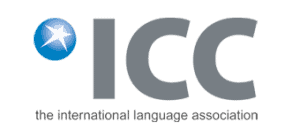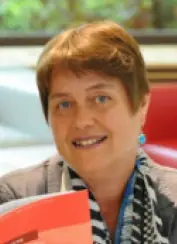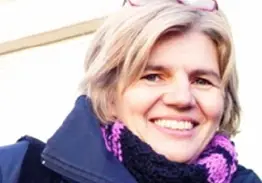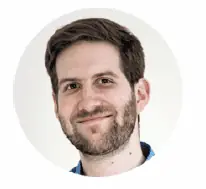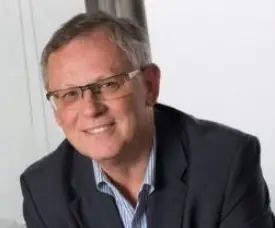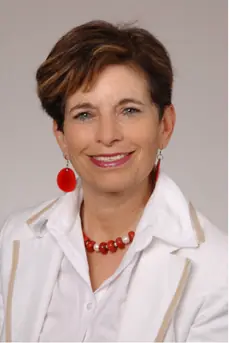2016 – 23rd Annual Conference, Mainz
Conference Review
Last year, delegates at the ICC 2015 conference on “Languages at Work 2020: Linking proven and successful approaches to language learning / teaching with innovative technology and the social media.” looked into the crystal ball, and outlined the challenges and trends they anticipated in the field of language learning and language teaching.
This year, the ICC language conference returns to Mainz and will concentrate on the key factor in language learning in institutional contexts: the teacher.
Our 2016 event will engage delegates in activities and discussions on the role or roles teachers now have to fulfil, the kind of profile they need to have, and the qualifications and training that can equip them for their task. Through sharing ideas and experience, we can all enlarge our concept of what makes a successful and empathetic teacher in post secondary language education.
The integration of Refugees and other Migrants:
Teaching the language and culture of the host society
A round table discussion on the provision of language learning opportunities for refugees and migrants is planned, at which proposals for the training of volunteers from outside the teaching profession will be discussed. In this context, we will pay particular attention to the provision of vocationally and professionally oriented language teaching (VOLL & POLL) and the danger of “deprofessionalisation” in the provision of language tuition in this field. Delegates are invited to (re)visit the ICC website entries devoted to EUROLTA and EUROVOLT by way of preparation.
Key Note Speaker (Guests)
Marion Grein
Marion GreinMarion was the principal speaker at the ICC Annual Conference 2014, where she enchanted participants with her brilliant talk on the neurosciences and their relevance for language learning and teaching. See the documentation of that event on the ICC Website.
She is an accomplished linguist with a background in comparative linguistics (English, German, Japanese) and specialistion in the teaching of adults with a main focus on German as a foreign/second language. Detailed information about Marion can be found at the Uni Mainz Webiste.
She has published widely, with a range of publications on the theory and practice of language teaching in adult education, as well as language textbooks for German. Currently, she is working on the production of language materials for the integration of refugees/migrants.
Francesca Helm
Francesca HelmAssistant professor of English at the Department of Political Science, University of Padova, Francesca Helm is also a member of the Executive Board of EUROCALL (European Association for Computer Assisted Language Learning) and vice-chair of the Education Innovation Working Group of the Coimbra Group of Universities.
Her research interests lie in online intercultural exchange, global studies, interdisciplinarity and the internationalisation of higher education and she has published articles in international journals on these areas. In the last 4 years she has been involved in professional development and research with European university lecturers who are teaching their subjects through English in Italy, Spain and Austria. Whilst she is concerned about the uncritical introduction of EMI in higher education and the risk of exacerbating social inequalities, in her practice and research she has found that EMI can also be a trigger for reflection on teaching in higher education and a driver for change.
Further information about Francesca can be see here.
Karl Damke
Director of English Studies and Foreign Languages at the Volkshochschule (VHS) Wiesbaden. Karl originally studied German as a Foreign Language in Bielefeld and Mainz. His Master ‘s thesis, supervised by Professor Marion Grein, focused on the possibilities of using online media in to improve reading comprehension. He has integrated his interest in the use of modern media in language teaching into his work as a teacher, administrator and trainer. At the Volkshochschule Wiesbaden he is actively involved in teacher training in this sector, helping language teachers to assess and facilitate the affordances of online tools and services.
In addition to his responsibilities at the VHS, he co-founded a non-profit-club/association called “Erweiterte Lernwelten e.V”. [”Extended Worlds of Learning”] in early 2015. This association brings together motivated administrators from a number of major VHS, and the club aims to actively encourage the idea of introducing a major change of paradigm in adult education, stimulated by an on-going digitalisation of life and learning. His talk at ICC conference 2016 will focus on the expertise and skills necessary for both counselling and teaching with modern media – skills that will characterise successful teachers of the future.
Sandra Gasper
Sandra Gasber is COO and co-founder of Berlin-based LinguaTV GmbH. With the online language training program at www.linguatv.com LinguaTV provides online video courses and interactive games for learning languages and the training of cross-cultural communication. Sandra has more than 10 years’ work experience in the media and education industry. At LinguaTV she is responsible for the production of digital content. She worked in the European Parliament and as lawyer before she founded LinguaTV.
LinguaTV was nominated by The British Council for the ELTons International Award for Innovation, was awarded the Comenius EduMedia Seal and received the World Summit Award for the world´s best eContent in the category “elearning and education”.
Key Note Speaker (ICC)
Rob Williams
Former Director and General Manager of the ICC, Rob Williams has been working in language education since 1983 as a teacher, teacher trainer, materials writer and assessor. Since 1998 he has also been involved in cross cultural training.
He is currently a principal lecturer at the University of Westminster (UoW), teaching on the MA TESOL and MA International Liaison and Communication. Until recently, he was also Director of the UoW/Ministry of Defence Languages Examinations Board, running mediation examinations at four levels in up to 47 different languages.
He is a passionate believer in the need for improved communication as a means to greater social understanding, and feels that maintaining high quality language instruction combined with intercultural competence goes a long way to achieving this. Within the ICC, Rob’s main focus is on structural management and quality assurance. Rob has helped greatly to shape the content and form of the EUROLTA programme and has written a guide for language teachers working in adult, continuing and higher education.
Michael Carrier
Director of Strategic Partnerships for Cambridge English, (Cambridge University), he has worked worldwide in language education for 30+ years (teacher, trainer, author, lecturer and director). Has an MBA and MA in Applied Linguistics and is interested in both academic and management aspects of ELT.
Former Executive Director of Eurocentres USA, CEO of International House World Schools Network and Director, English Language Innovation at the British Council. Author of many ELT course books and professional articles, including the Break into English series, Front Page series, Business Circles. and professional articles. Area of specialisation is educational technology (until 2014, Technology Editor of MET journal.
Currently serving on the Boards of EAQUALS & the ICC; Trustee of the TIRF Research Foundation (USA) and member of the Advisory Board of CUP’s Language Teaching journal. Serves on UKTI’s ELT Advisory Group to advise the UK government’s education strategy. Fellow of the Royal Society of Arts, Member of the Institute of Directors, the Society of Authors and the Oxford & Cambridge Club in London, he has worked in language education for 30 years as a teacher, trainer, author, and director in Germany, Italy, Poland, UK and USA, and lectured worldwide. Michael has an MA in Applied Linguistics and an MBA, and is interested in both the academic and management aspects of ELT. Former Executive Director of Eurocentres USA, CEO of the International House World schools network and Director, English Language Innovation at the British Council in London.
Myriam Callus Fischer
Myriam Fischer Callus, former Director of English Studies at the Volkshochschule in Aschaffenburg, Germany, has been working in adult language education since 1980 as a teacher, teacher trainer, course book and materials writer and assessor. She was part of the German work group that developed a language portfolio for adults which was accredited by the Council of Europe in 2006. She is a consultant for various publishing companies and has written a series of English course books for adults.
As Head of the Bavarian EUROLTA team, she has been training teachers and teacher trainers since 2002. She has been crucial in the development and implementation of EUROLTA both in and outside Germany and advises the ICC Board on the further development of EUROLTA. Myriam believes that the quality of language teachers is of utmost importance in a global world of mobility. In language teaching, she believes that EUROLTA guarantees such high quality.
